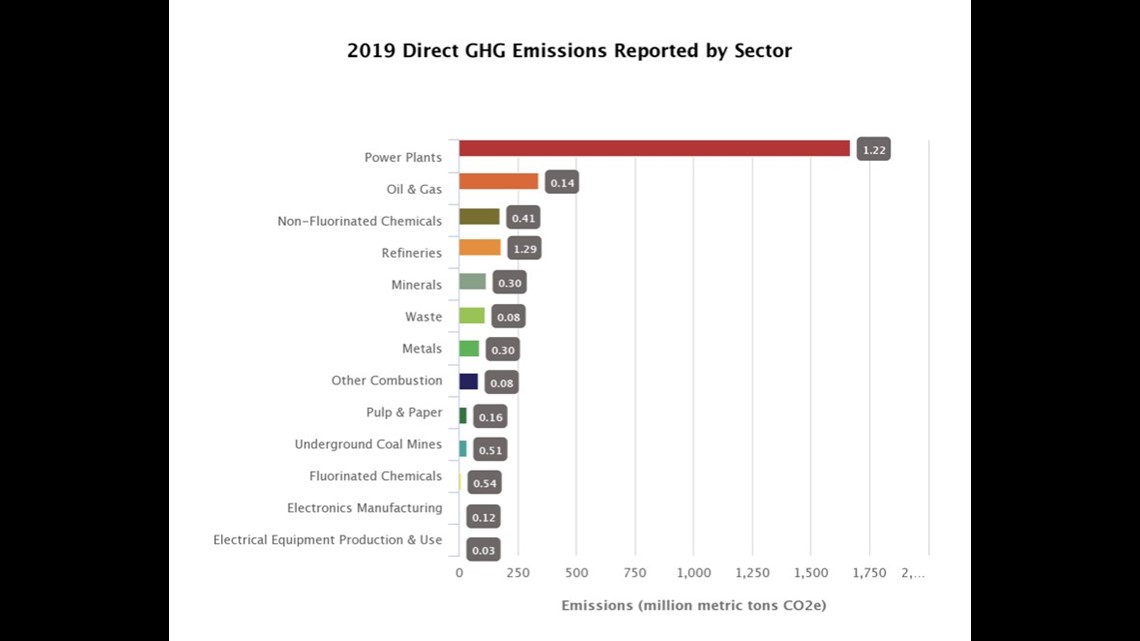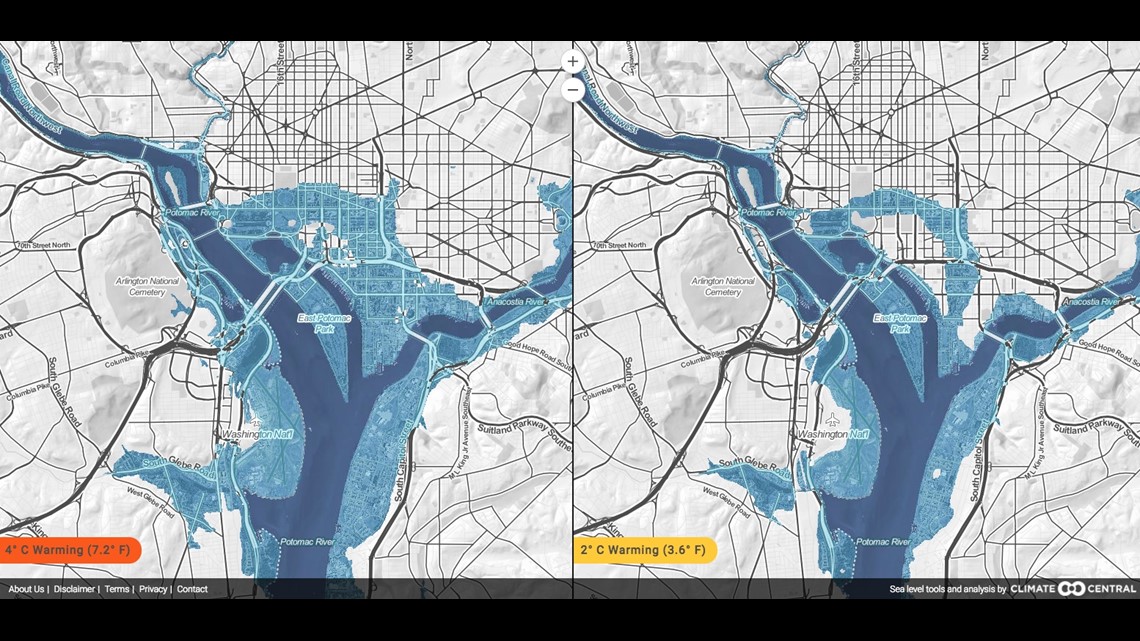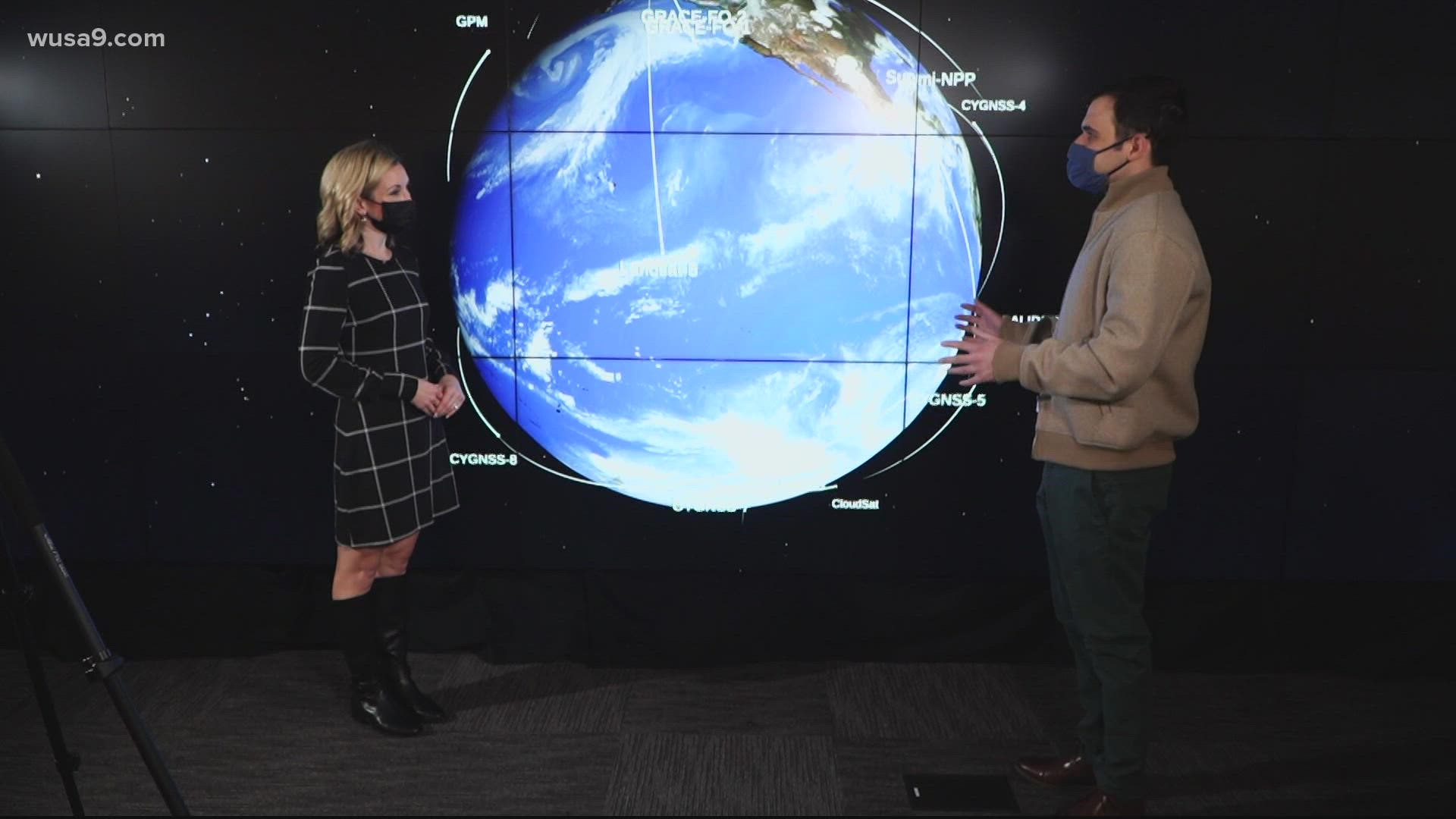WASHINGTON — Significant progress has been made over the years in educating Americans about the threat climate change poses to the environment.
A new report from Yale shows Americans who acknowledge climate change as real outnumber those who do not by a ratio of 6-1. But there are still a lot of questions around if and how humans are contributing to the change in the climate.
The causes and effects of climate change can be complex and confusing. So we talked to the top experts to Verify two big questions:
THE QUESTIONS:
- How do we know that climate change is driven by humans?
- What does it mean for our community if we don’t act?
THE SOURCES:
- Ryan Kramer- a research scientist with NASA
- Dan Goldberg- an assistant research professor at the Milken Institute School of Public Health
THE ANSWER:
Yes, our experts say humans are responsible for contributing to climate change through greenhouse gas emissions.
WHAT WE FOUND:
Ryan Kramer, a research scientist with NASA who studies climate models and satellite observations, said, "There's absolutely no question at all that humans are causing climate change."
Through his research, Kramer has seen firsthand, time and time again, how humans are contributing to climate change.
"We know humans are [contributing] to climate change, because we have multiple lines of evidence," Kramer said in an interview with WUSA9. "That’s key to remember, it’s not just one thing. Since the industrial revolution, we see temperatures increasing, we've been monitoring carbon dioxide in the atmosphere directly since the 1950s. That's increasing. We have satellite information that tells us is changing."
Kramer said the science has only improved over the years and the data shows that what is happening with the climate is "unprecedented."
According to Kramer, humans are contributing to the increase in greenhouse gas emissions. As humans add greenhouse gases to the atmosphere, Kramer says it prevents energy from leaving and escaping to space. Therefore, the energy returns to the surface and warms the planet.
"Anything that emits these heat trapping greenhouse gases -- industry coming from factories, driving your cars, traveling by air, most honestly, most activities that humans are [participating in] -- have some sort of effect on the climate," Kramer said.
Here is a 2019 report of direct greenhouse gas emissions across different industries from the Environmental Protection Agency:


The report shows power plants are responsible for nearly nine times more greenhouse gas emissions than any other sector. Refineries are the next most commonly emitted greenhouse gas responsible with oil and gas not far behind.
Both the Potomac and Anacostia rivers are tidal rivers, meaning they rise with ocean tides. As a result, D.C. rivers have risen about 11 inches over the past century. Combine that with the fact that the district is actually sinking very slowly, the future of so many historic locations and crucial roadways is bleak unless we take action now.


"You can just see the impact," Kramer said. "I mean, all these important locations, the National Mall, underwater, Reagan National Airport, underwater, places all up and down through rivers essentially inundated with water all the time."
Dan Goldberg, an assistant research professor at the Milken Institute School of Public Health who studies air pollution levels said, "Any time we combust the fuel be that gasoline, coal, wood, we mostly are emitting carbon dioxide and water. But in addition to that we're emitting nitrogen oxides as well. And nitrogen oxides are quite toxic to human health."
Goldberg said as we get more energy efficient, things will start to move in the right direction, but it would happen slowly.
"Solar and wind energy are priced competitively with fossil fuels. That wasn't the case 10-15 years ago," Goldberg said. "I'm really optimistic that we can get somewhere in the next decade or two if we really make [a] concerted effort to transition to some of these cleaner fuels."
So while humans are responsible for contributing to climate change through greenhouse gas emissions, humans can also contribute to the solutions.

